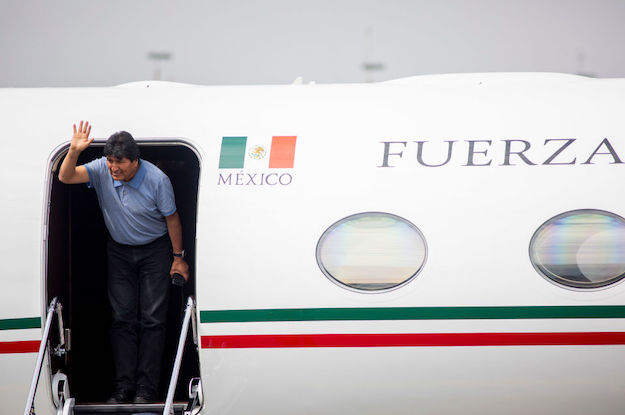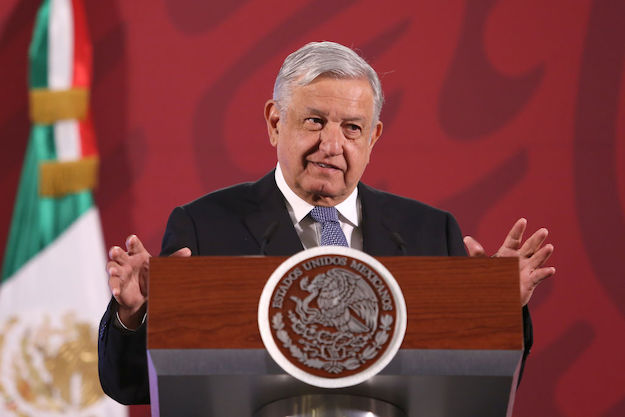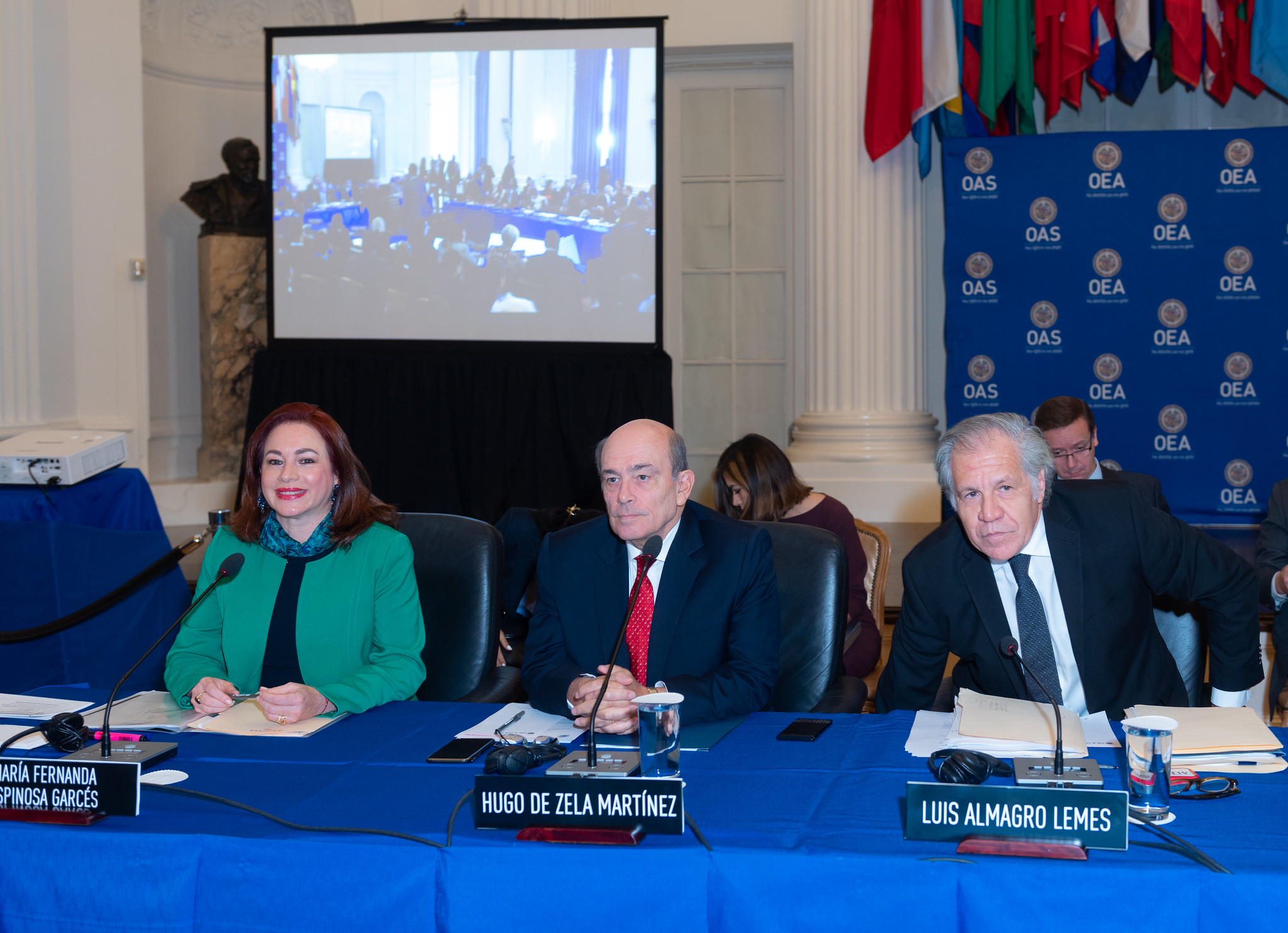MEXICO CITY – After nearly a year as president, Andrés Manuel López Obrador needs a change in narrative.
His first 12 months in office will have been the most violent in Mexico’s history, with neighbors in the U.S. inundated by reports on CNN, Fox News, The New York Times and elsewhere over ongoing brutality along the southern border. Senator Lindsey Graham claims that some parts of Mexico are more dangerous than Syria, and the Wall Street Journal recently ran an editorial suggesting a military intervention to subdue Mexico’s drug cartels.
Needless to say, that’s not the international image that López Obrador was hoping to project when he entered office promising a less violent, more compassionate approach to public security.
If he’s looking for ways to reshape the story of his presidency so far, López Obrador would do well to start by tending to the country’s reputation abroad. Paradoxically, for a president who says that “the best foreign policy is a good domestic policy,” the coming year may present opportunities for AMLO, as the president is known, to do just that.
In 2017, then-candidate López Obrador surprised many longtime critics by embarking on an international tour (flying coach, of course) of major cities in the U.S., South America and Europe. For many this marked the unofficial launch of López Obrador’s presidential campaign, and it was refreshing to see the notoriously inward-looking politician seem to take an interest in world affairs.
That tour was noteworthy in part because Donald Trump had just become the 45th president of the United States, running on a toxic anti-Mexican and anti-immigration platform. AMLO traveled to cities like Chicago, Los Angeles, New York and Laredo to deliver a message to Mexican immigrants that he would defend them if elected. South America was undergoing its own convulsions, following Dilma Rousseff’s impeachment in Brazil and a coming election in which Jair Bolsonaro was an early frontrunner; there, too, AMLO could be seen as a sort of antidote.
But if those trips gave the impression that AMLO could be a global symbol and a leader of the Latin American left, his presidency hasn’t quite lived up to billing. Since taking office, AMLO has refused to travel overseas, skipped his first UN General Assembly, and did not attend the G-20 meeting in Japan. The idea of a state visit to the U.S. doesn’t even seem to be on the table.
And yet AMLO has nonetheless inserted himself – or perhaps been inserted – into world affairs.
When Argentina’s President-elect Alberto Fernández decided to break diplomatic tradition and rebuke Bolsonaro by visiting a country other than Brazil as his first post-election trip abroad, AMLO’s Mexico was the obvious choice.
It was also AMLO’s government that offered political asylum to Bolivia’s Evo Morales, sending a government plane to bring the deposed president to Mexico City, where he remains. Morales’ arrival has sparked much domestic debate, but also prompted diplomatic applause from other leftist leaders in Latin America and elsewhere.
Thus, even though AMLO has yet to leave the country as president, Mexico has assumed a position as a regional touchstone. Marcelo Ebrard, Mexico’s foreign affairs minister, deserves a fair share of credit for this fact. A former mayor of Mexico City with strong connections to international organizations, Ebrard is savvy enough to understand Mexico’s international moment and to deepen international alliances that could reinforce AMLO’s position as Latin America’s leader. He has shown himself to be an effective diplomat and a driving force within the president’s Cabinet.
Whether by happenstance or intention, AMLO enters his second year with a clear regional role on which he and Ebrard can begin to build. This is also the case closer to home, in Central America, where despite a crackdown on immigration (largely under pressure from Trump), Ebrard and López Obrador have put real time and resources into plans to invest in the development of the region, with multilateral help. While previous Mexican governments launched similar initiatives that were not sufficiently funded, AMLO and Ebrard seem to have learned from previous failures.
In the U.S., Trump’s denigration of Mexico and Mexicans should continue to help buoy AMLO’s image. Recent waves of violence have undoubtedly had a negative effect, but there are two policy initiatives that the president could capitalize on in order to start changing the conversation.
The first is that Mexico will most likely legalize and regulate its cannabis market next spring. As a response to rising violence, the move would be in line with progressive positions in the U.S. and beyond, and could mark the beginning of a significant change in Mexico’s “war on drugs,” with consequences for the region as a whole. It’s the type of change that would have not just rhetorical impact, but a positive concrete effect as well – moving the country away from militarization and toward a more strategic approach to slowing violence.
Second, if the Democratic leadership in the U.S. Congress unfreezes ratification of the new trade agreement between Mexico, U.S. and Canada, the news cycle in all three countries could shift to trade and economic issues – much as it has tended to do in the past.
As with a long line of presidents with troubles at home before him, even AMLO may start to look for victories abroad. If 2020 is remembered as a year of returning economic growth and investment, a new North American Free Trade Agreement, and the beginning of the end of the war on drugs, it may also be remembered as a year when Mexico reasserted its place as a regional leader, a role the country has not enjoyed in a long time.








